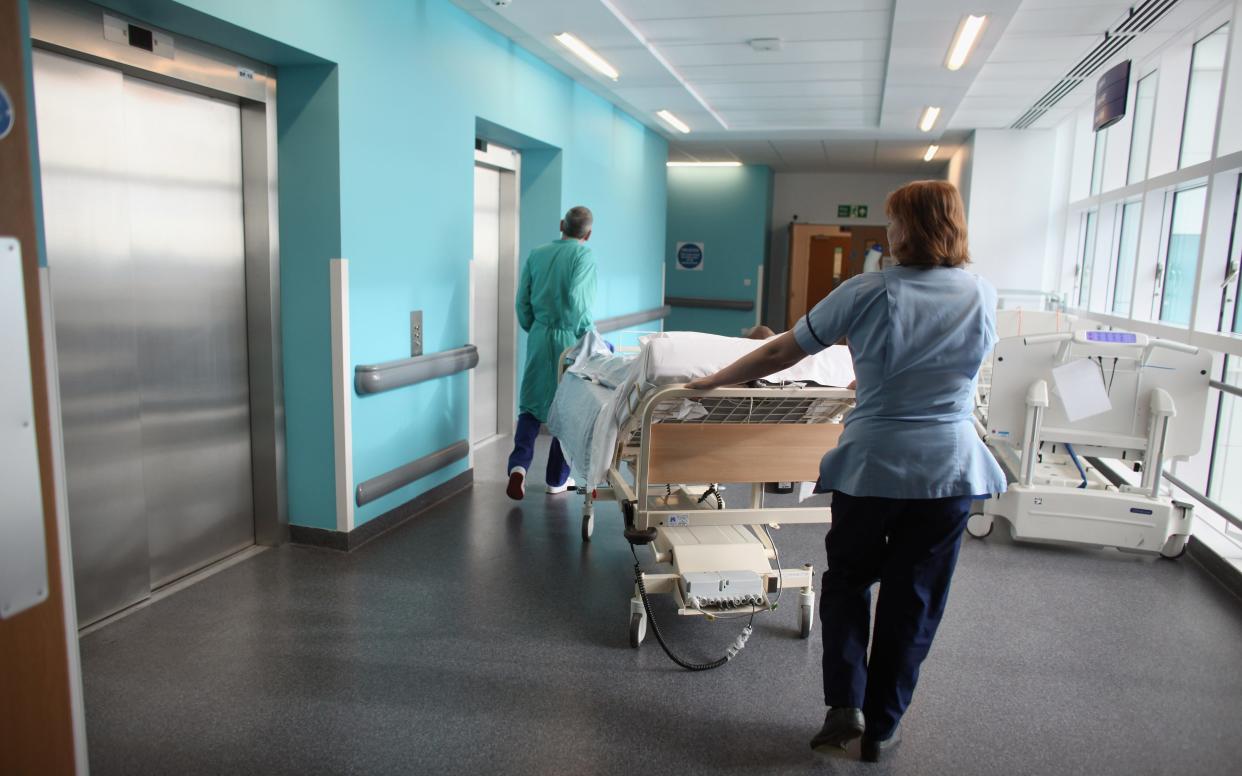Communal thermometers blamed for deadly Japanese fungus outbreak in NHS hospitals

Sharing equipment in hospitals could be spreading deadly superbugs, experts have concluded, after finding most patients carrying a Japanese fungal infection had been treated with the same thermometers.
Last August, Public Health England (PHE) warned that the drug-resistant fungus had spread to at least 55 hospitals across Britain, infecting more than 200 patients.
At the time a lack of nursing staff was blamed for the outbreaks, with NHS trusts ordered to carry out deep cleans to avoid further spread.
But new research by the University of Oxford has found that in at least one outbreak, armpit thermometers had been used in 57 out of the 66 infected patients. (86 per cent)
Dr David Eyre from the Nuffield Department of Medicine at the University of Oxford said: “Despite a bundle of infection control interventions, the outbreak was only controlled following removal of the temperature probes.”
"This reinforces the need to carefully investigate the environment, and in particular multi-use patient equipment, in any unexplained healthcare-associated outbreak.”

The fungus, called Candida auris (C.auris) , was first identified in Japan in 2009, in the ear canal of a 70-year-old woman. Since then it has spread rapidly around the globe, emerging in at least five continents, with the first UK case detected in 2013.
Experts are alarmed by the rapid, which has been likened to a ‘superbug’- because it has already proved resistant to the main three classes of drug treatment.
Healthy patients can usually fend off the fungus, but those with compromised immune systems can develop a bloodstream infection, which can prove fatal, or cause major disabilities such as hearing loss.
For the new study, researchers analysed 70 patients admitted to Oxford University Hospitals Neurosciences Intensive Care Unit (NICU), who carried C.auris and found 66 had not had the infection when they entered the unit.
Seven patients developed invasive infections, but none died directly as a result of a C. auris infection.
Researchers discovered the fungus on the surface of the temperature probes and after cross referencing it with the patient samples found it was the same genetic strain.

The researchers also found that the fungus tested was resistant to common treatment and survived despite rigorous hygiene in the ward.
In the most recent outbreaks, The Royal Brompton Hospital and Harefield NHS Foundation Trust in London were among the worst affected, leading to the closure of its intensive care unit for two weeks.
High numbers of cases have also been seen at Kings College Hospital Foundation trust.
Global studies have found six in ten of those infected with the fungus die - though it has not been shown whether the infection has caused the deaths.
Hospitals and nursing homes have now been ordered to isolate any affected patients, and to carry out deep cleans of infected areas
A spokesman for Public Health England said: "These findings are specific to one hospital, but they do highlight that hospitals who see a potential outbreak need to look at every possible thing in the ward."
The research was presented on Friday at the 28th European Congress of Clinical Microbiology and Infectious Diseases in Madrid.

 Yahoo News
Yahoo News 
